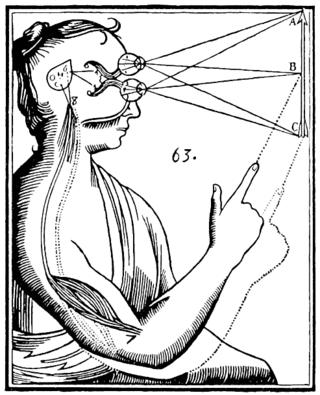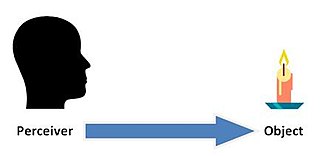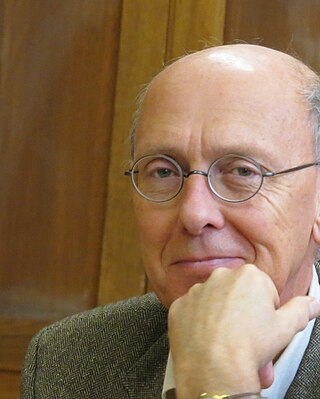
The philosophy of perception is concerned with the nature of perceptual experience and the status of perceptual data, in particular how they relate to beliefs about, or knowledge of, the world. Any explicit account of perception requires a commitment to one of a variety of ontological or metaphysical views. Philosophers distinguish internalist accounts, which assume that perceptions of objects, and knowledge or beliefs about them, are aspects of an individual's mind, and externalist accounts, which state that they constitute real aspects of the world external to the individual. The position of naïve realism—the 'everyday' impression of physical objects constituting what is perceived—is to some extent contradicted by the occurrence of perceptual illusions and hallucinations and the relativity of perceptual experience as well as certain insights in science. Realist conceptions include phenomenalism and direct and indirect realism. Anti-realist conceptions include idealism and skepticism. Recent philosophical work have expanded on the philosophical features of perception by going beyond the single paradigm of vision.

In the philosophy of mind, mind–body dualism denotes either the view that mental phenomena are non-physical, or that the mind and body are distinct and separable. Thus, it encompasses a set of views about the relationship between mind and matter, as well as between subject and object, and is contrasted with other positions, such as physicalism and enactivism, in the mind–body problem.

John Henry McDowell is a South African philosopher, formerly a fellow of University College, Oxford, and now university professor at the University of Pittsburgh. Although he has written on metaphysics, epistemology, ancient philosophy, nature, and meta-ethics, McDowell's most influential work has been in the philosophy of mind and philosophy of language. McDowell was one of three recipients of the 2010 Andrew W. Mellon Foundation's Distinguished Achievement Award, and is a Fellow of both the American Academy of Arts & Sciences and the British Academy.

John Langshaw Austin, OBE, FBA was a British philosopher of language and leading proponent of ordinary language philosophy, best known for developing the theory of speech acts.

John Jamieson Carswell Smart was a British-Australian philosopher who was appointed as an Emeritus Professor by the Australian National University. He worked in the fields of metaphysics, philosophy of science, philosophy of mind, philosophy of religion, and political philosophy. He wrote several entries for the Stanford Encyclopedia of Philosophy.

In philosophy of perception and epistemology, naïve realism is the idea that the senses provide us with direct awareness of objects as they really are. When referred to as direct realism, naïve realism is often contrasted with indirect realism.

Stephen Richard Lyster Clark is an English philosopher and professor emeritus of philosophy at the University of Liverpool. Clark specialises in the philosophy of religion and animal rights, writing from a philosophical position that might broadly be described as Christian Platonist. He is the author of twenty books, including The Moral Status of Animals (1977), The Nature of the Beast (1982), Animals and Their Moral Standing (1997), G.K. Chesterton (2006), Philosophical Futures (2011), and Ancient Mediterranean Philosophy (2012), as well as 77 scholarly articles, and chapters in another 109 books. He is a former editor-in-chief of the Journal of Applied Philosophy (1990–2001).
John Broome is a British philosopher and economist. He is emeritus White's Professor of Moral Philosophy at the University of Oxford and emeritus Fellow of Corpus Christi College, Oxford.

Jonathan Peter Dancy is a British philosopher, who has written on ethics and epistemology. He is currently Professor of Philosophy at University of Texas at Austin and Research Professor at the University of Reading. He taught previously for many years at the University of Keele.
Sir Keith Vivian Thomas is a Welsh historian of the early modern world based at Oxford University. He is best known as the author of Religion and the Decline of Magic and Man and the Natural World. From 1986 to 2000, he was president of Corpus Christi College, Oxford.
Brian James Bond is a British military historian and professor emeritus of military history at King's College London.

R. Jay Wallace is Distinguished Professor of Philosophy and William and Trudy Ausfahl Chair at the University of California, Berkeley. His areas of specialization include moral philosophy and philosophy of action. He is most noted for his work on practical reason, moral psychology, and meta-ethics.
John Young Campbell is a British-American economist who has served as the Morton L. and Carole S. Olshan Professor of Economics at Harvard University since 1994.

James Opie Urmson was a philosopher and classicist who spent most of his professional career at Corpus Christi College, Oxford. He was a prolific author and expert on a number of topics including British analytic/linguistic philosophy, George Berkeley, ethics, and Greek philosophy.

Timothy Martin Crane is a British philosopher specialising in the philosophy of mind, philosophy of perception, philosophy of psychology and metaphysics. His contributions to philosophy include a defence of a non-physicalist account of the mind; a defence of intentionalism about consciousness; a defence of the thesis that perceptual experience has non-conceptual content; a psychologistic approach to the objects of thought; and a defence of the thesis that intentionality is the mark of the mental. He is currently the Head of Department and Professor of Philosophy at Central European University, and was previously the Knightbridge Professor of Philosophy at the University of Cambridge and a Fellow of Peterhouse. For the academic year 2020–21 he was a visiting professor at the University of Italian Switzerland.
James Patrick Griffin was an American-born philosopher, who was White's Professor of Moral Philosophy at the University of Oxford from 1996 to 2019.
Sir Anthony Edward Bottoms FBA is a British criminologist. He is life fellow at Fitzwilliam College, Cambridge, having previously been a Wolfson Professor of Criminology at the Institute of Criminology in the Faculty of Law at the University of Cambridge from 1984 to 2006 and until December 2007 a professor of criminology jointly at the universities of Cambridge and Sheffield.
François Recanati is a French analytic philosopher and research fellow at the College de France, and at the Centre National de la Recherche Scientifique. Many of his works focus on the philosophy of language and mind.
Robert George Murdoch Nisbet, FBA, known as Robin Nisbet, was a British classicist and academic, specializing in Latin literature. From 1970 to 1992, he was Corpus Christi Professor of Latin at the University of Oxford.
Michael Gerard Fitzgerald Martin is a British philosopher who is currently Wilde Professor of Mental Philosophy at the University of Oxford and Mills Adjunct Professor of Philosophy at UC Berkeley.










